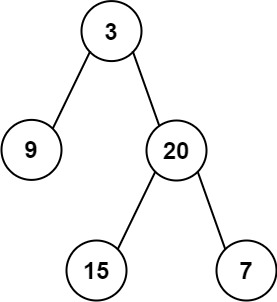1
2
3
4
5
6
7
8
9
10
11
12
13
14
15
16
17
18
19
20
21
22
23
24
25
26
27
28
29
30
31
32
33
34
35
36
37
38
39
40
41
42
43
44
45
46
47
48
49
50
51
52
53
54
55
56
57
58
59
60
61
|
## Leetcode
This repository contains my Leetcode solutions for [user 0x6A73](https://leetcode.com/u/0x6A73). Generally, the daily challenge is solved in both C and Python3.
### Notes
The [`leetcode.h`](leetcode.h) header file contains various includes, standard Leetcode structs (`ListNode`, `TreeNode`), and some helpful macros, like calculating the size of a C array using `builtin` functions.
```c
#define IS_ARRAY(value) \
(!__builtin_types_compatible_p(typeof((value)), typeof(&(value)[0])))
#define ARRAY_SIZE(array) \
(__builtin_choose_expr(IS_ARRAY((array)), \
sizeof((array)) / sizeof((array)[0]), (void)0))
// foo.c
int arr[] = {1, 2, 3};
int foo = func(arr, ARRAY_SIZE(arr));
```
The [`leetcode.c`](leetcode.c) file has helpful functions to fill `ListNode` and `TreeNode` data structures with provided data, and also print data returned by such functions. For examples, see the following `main` functions.
#### `ListNode` data type

```c
int main() {
int input[] = {0, 3, 1, 0, 4, 5, 2, 0};
struct ListNode *head = listnode_build(input, ARRAY_SIZE(input));
listnode_print(head);
}
```
#### `TreeNode` data type

```c
int main() {
int input[] = {3, 9, 20, -1, -1, 15, 7};
// note: -1 denotes a 'null' leaf. if a problem's input depends on
// this value, use treenode_create() to individually create each node
struct TreeNode *root = treenode_build(input, ARRAY_SIZE(input));
treenode_print(root);
}
```
#### 2D Array Helpers
```c
int func(int **edges, int edgesSize, int *edgesColSize);
int main() {
// edges = [[0,1],[0,2],[1,3],[1,4],[2,5],[2,6]]
int edges_input[6][2] = {{0, 1}, {0, 2}, {1, 3}, {1, 4}, {2, 5}, {2, 6}};
struct two_d_arr *edges = two_d_arr_init(ARRAY_SIZE(edges_input), ARRAY_SIZE(edges_input[0]), edges_input);
int res = func(edges.arr, edges.row_size, edges.col_size);
two_d_arr_free(edges);
}
```
|
